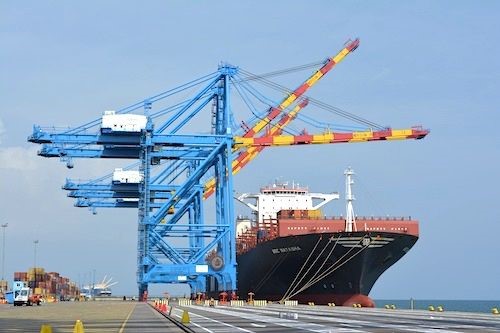The African Centre for Economic Transformation (ACET) is strongly recommending a comprehensive national policy for the Export Processing Zones (EPZ) since it has basically failed to deliver the economic benefits associated with its implementation.
ACET’s report shows that the country’s EPZ structure lags behind in many aspects of the objectives for which it was set up; such as failing to curb the rising level of unemployment in the country, as well as, its inability to tilt the balance of trade (BoT) in favour of the country.
ACET identified some of the challenges responsible for this state of affairs as the programme not being well-connected to the broader national development agenda and other industrial policies of government.
An even more serious observation is the recognition that the current compliance and reporting regime under the various incentives is not rigorous and reliable to safeguard the state’s interests.
In our view, more importantly, the free zones scheme is the subject of many waves of abuse and revenue leakages which has to be tackled.
In this technologically-driven and competitive world of commerce, it has been observed that technology-adoption in the zones is low and the current educational system is not linked well to the needs of the manufacturing industry.
To address such challenges, the policy think-tank recommends that a policy on EPZs in Ghana be formulated as soon as possible.
Again, ACET recommends that to ensure benefits of the programme are maximised and political commitment secured for its efficient operationalisation, there is a need to re-design the EPZ concept to be in line with current policy goals of government.
“There is a need to connect objectives of the zone to the broader development plan, and regional and global contexts, to project Ghana’s comparative advantage”.
Among the recommendations ACET advances is for a new system based on best practices which relies on technology be employed to eliminate the human element in the vetting and monitoring processes.
Another recommendation made is improvement in the control of corruption, and corporate social responsibility by enclave-based firms.
ACET’s study is useful and analyses the ‘raison d’etre’ of the establishment of the EPZ vis-à-vis what is taking place now against its stated objectives.
Interestingly, the Ghana Free Zones Programme was designed to promote processing and manufacturing of goods through the establishment of Export Processing Zones (EPZs), and encourage the development of commercial and service activities at sea and air-port areas.
ACET’s call for a comprehensive review of the Ghana Free Zones Authority Act is based on the fact that the current regime gives room for abuse and corruption.










